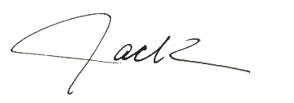Gary Forsee Goes Rogue, with Predicatble Results

Find out what's REALLY happening in the news: The primary purpose of KC NewsWatch will be to watch the news and objectively correct it as needed through appropriate reporting and commentary. Particular emphasis will be on news print, radio and television media reaching areas surrounding the Kansas City Metro area. |
Tune in for what's new in Kansas: It's a web-based news site, and regularly published journal, dedicated to limited government in the great state of Kansas. |
![]()
by Jack Cashill
Published in ingramsonline.com - January 2010
Comments about effects of cap and trade irritate some powerful constituents.
On Nov. 17, University of Missouri system President Gary Forsee startled the academic community and the Missouri media when he dared to send the state’s congressional delegation a letter protesting the climate change legislation known as “cap and trade.”
“As currently written,” Forsee argued forcefully, “we have grave concerns and oppose this legislation for the detrimental impact it will have on the University of Missouri system.” Forsee went on to document the millions in potential energy costs that cap and trade would impose on the four university campuses.
Forsee did not mention, but likely understood, the impact on state revenues that cap and trade could have as well. Ed Robb, a fellow at the libertarian Show-Me Institute and a former Missouri University economics professor, has argued that the legislation would have “fairly devastating effects on the economy” of Missouri.
Robb anticipates $2 billion loss in personal income, and for Forsee, that means a big-time loss of tax revenue. Forsee has been on the job for a few years, but if he had only been on the job the past 20 minutes, he would understand that when the legislature starts cutting, UM System begins to look like a slab of beef.
Forsee was not supposed to notice all this. As the president of a big state university system, he was expected to share the opinion of local Democratic office holders and the editorial board members of the Kansas City Star on any issue more controversial than a called third strike at a Royals’ game. All were dutifully shocked when he did not.
Historically, university presidents throughout the fruited plain have felt about as free to offer an unorthodox opinion as a teenage bride at a Taliban wedding. Ask ex-Harvard President Larry Summers. In 2005, fresh from a stint as Secretary of the Treasury, Summers responded to a question as to why science and engineering faculties had so few women. Said he ingenuously, “There are issues of intrinsic aptitude, and particularly of the variability of aptitude.”
Oops! Summers had dared to speak the unspeakable: Yes, Virginia, boys and girls are different. Who knew? Despite apologies more abundant and abject than Tiger’s to Elin, Summers was forced to resign. The rest of America’s university presidents took note. Forsee apparently did not.
Forsee had been spending his time learning things more useful than the Byzantine protocol expected of a university presidency. Before signing up to manage the University of Missouri System, Forsee was Chairman and CEO of Sprint Nextel, an institution where “PC” means something more pressing than “politically correct.”
Forsee will survive, however, where Summers did not for one reason: He inhabits a state quite unlike Massachusetts, one whose very nickname, “Show-Me,” suggests a historic respect for horse sense and good old-fashioned skepticism.
To be fair, editors at The Star did half-heartedly concede Forsee’s right to his opinion, but they contended that Forsee “wildly overestimated” the problem. They came to this conclusion based on an instant analysis done by the staff of warmist-in-chief Henry Waxman, the Chicken Little who chairs the U.S. House Energy and Commerce Committee.
What did they expect Waxman to say? “Oh, you know, maybe Forsee has a point?” Not likely. Waxman’s minions did not even bother to calculate the economic effects of cap and trade on a coal-happy state like Missouri.
When I appeared recently on KCPT’s fair-minded Kansas City Week In Review, fellow panelist Barbara Shelly of The Star used the telling word “bungle” to describe Forsee’s attempt to protect the university’s interest. Her word choice, however, says less about Forsee than it does the The Star’s industrial-strength myopia on the controversy roiling of the world of climatology.
One major part of the controversy has to do with the paradigm-shaking scandal known as “Climategate.” If you depend on The Star for your news, you may not have heard of it.
“I’ve been getting a lot of e-mails of my own on this topic, urging me to follow the money trail, and thereby expose fraudulent science,” sniffs Matthew Schofield, a Star editorial board member who appears to have been born in the past week. “But where is the money in this issue?”
Where is the money? Well, Matt, let us start with this email from University of East Anglia Professor Phil Jones, the head of the influential Climate Research Unit at the center of the data-rigging flim-flam.
Wrote Jones to erstwhile U.N. IPCC lead author, John Christy, “I would like to see the climate change happen, so the science could be proved right, regardless of the consequences. This isn’t being political, it is being selfish.”
Selfish? Indeed. Jones has already received some $22.6 million in grants, and as long he can keep the temperatures rising, the grants will rise with them. Climate change skeptics, on the other hand, are lucky if they get tenure and use of the copy machine.
To be sure, Jones’ bonanza is chump change compared to the real money involved. Consider this Reuters’ headline, “U.S. backs $100 billion climate fund.” No matter how funny the money, that is one hell of an incentive for all concerned to jack with the thermostat.
The other part of the controversy has to do with the vaudevillian climate shakedown known as Copenhagen. Every tin-pot dictator in the Third World showed up with his hand out and his finger wagging. Among the most flamboyantly miffed was the clown prince of Venezuela, Hugo Chavez, who likened President Obama to Lucifer for not doing enough to halt the imagined rise of the seas.
According to Schofield, however, there is no controversy. Indeed, the absence of curiosity in America’s newsrooms on climate change—and a dozen other issues in the age of Obama—has become a story in and of itself.
Schofield goes so far as to compare the thousands of dissenting scientists on this issue to those who took money from the tobacco companies. “We’ve seen this trick before,” Schofield writes dismissively.
Schofield might want to explain that trick to America’s preeminent physicist, Freeman Dyson, who has joined forces with the growing swell of “denialists.” Concedes the New York Times, Dyson’s “dissension from the orthodoxy of global warming is significant because of his stature and his devotion to the integrity of science.”
Although Schofield does not accuse Forsee of shilling for Big Power, others have, and the news travels. One of the questions we fielded on the aforementioned Kansas City Week in Review asked whether Forsee’s “role on a number of corporate boards, including that of Great Plains Energy . . . may be shaping his agenda as university president.”
Which, in rhetorical terms, is the equivalent of that old gotcha question: “Do you still beat your wife?” In Forsee’s case, the best answer to a suggestion like that is probably just a cold, hard stare.



